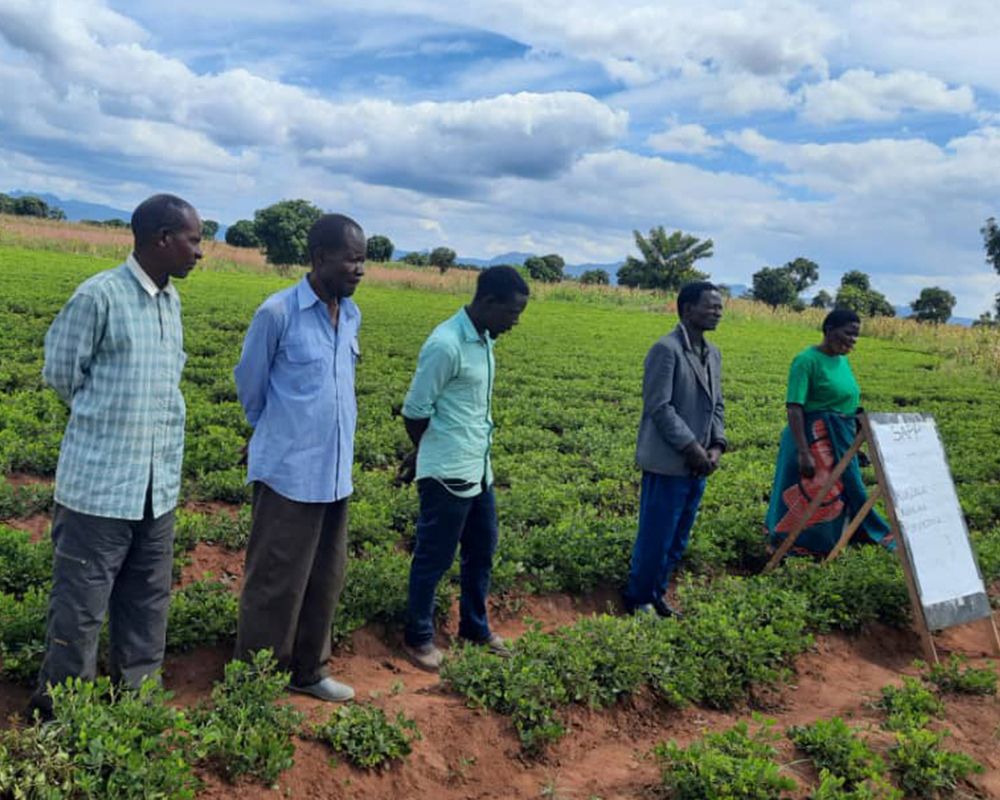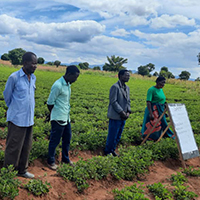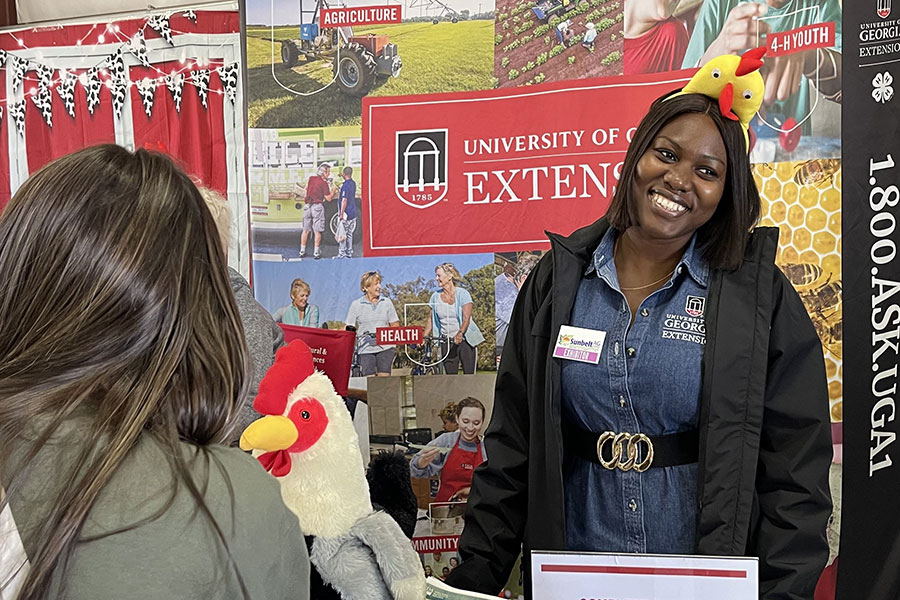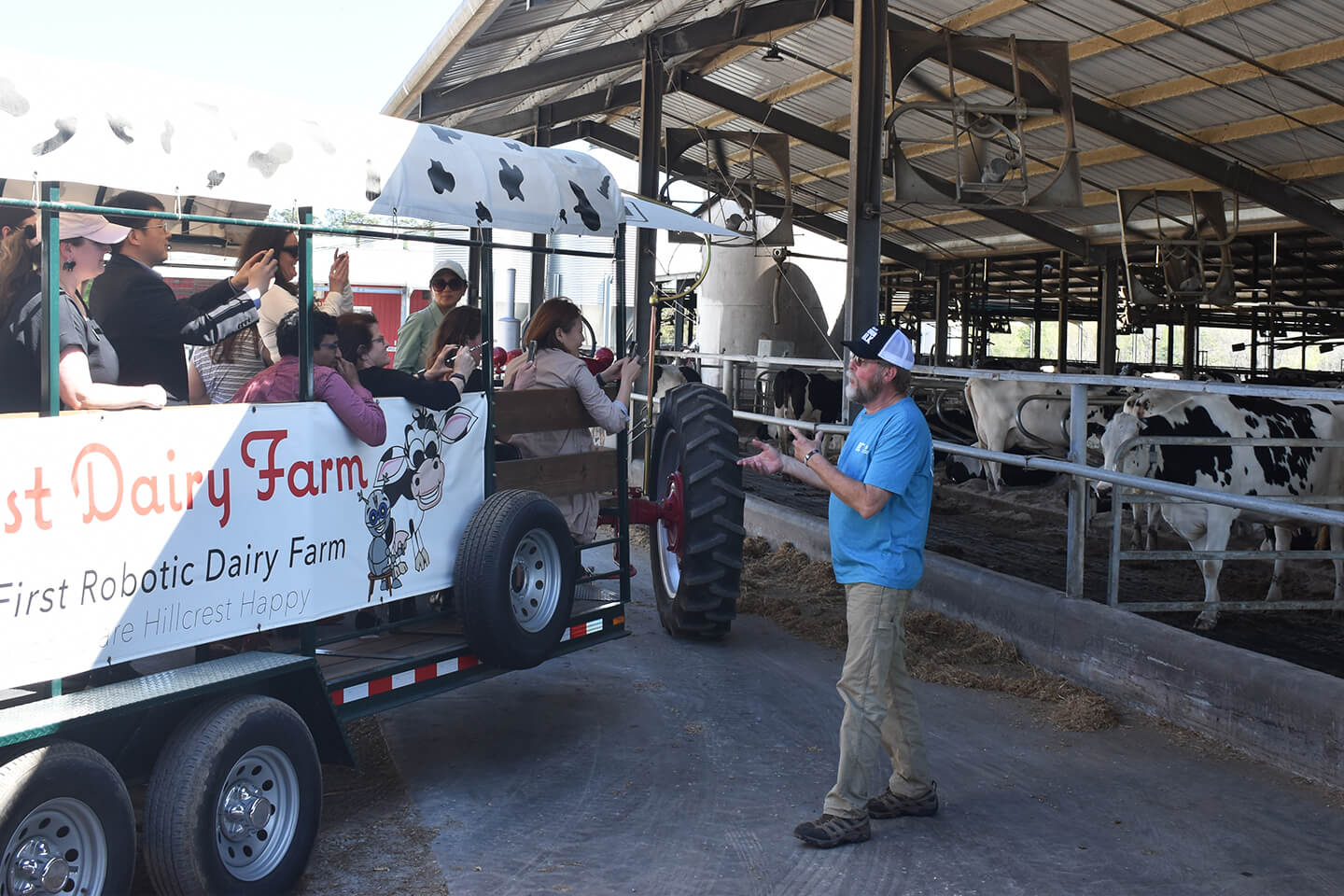For decades, farmers in Kenya and Malawi have suffered declining agricultural productivity due to climate change and unsuccessful adoption of advanced agricultural technology. However, new research from the University of Georgia indicates that improving government policy while integrating indigenous methods with new technology will increase the productivity of struggling farms.
In an article in the Journal of International Agricultural and Extension Education, UGA researchers published their findings from a study performed to gauge the perceptions of farmers in Kenya and Malawi on government-appointed extension agents and the information the agents provide to the farmers. The study was led by Fallys Masambuka-Kanchewa in collaboration with Kevan Lamm and Alexa Lamm in UGA's College of Agricultural and Environmental Sciences Department of Agricultural Leadership, Education and Communication (ALEC).
Subsistence farming is common in countries including Kenya and Malawi, but according to the study, climate change has had a major impact on farming in these sub-Saharan Africa countries. Many farmers have just 1 acre of cropland and consequences are dire if they cannot produce. The UGA research study found that integrating farmers’ indigenous knowledge with new advanced technology could help to increase agricultural production on these farms.
“There has been this misconception that, since the extension agents are promoting these improved technologies, there is a mindset that the local knowledge is kind of backward, so people do not want to use the local knowledge,” said Masambuka-Kanchewa, a Malawi native and postdoctoral associate at UGA who conducted the interviews with Malawi farmers prior to COVID-19 travel restrictions.
Kevan Lamm, assistant professor and UGA Cooperative Extension leadership specialist, separately interviewed focus groups of rural Kenyan farmers in the “Seed Savers Network” as part of a larger project for the African Forum for Agricultural Advisory Services.
When Masambuka-Kanchewa and Kevan Lamm debriefed about their projects, they recognized an opportunity to examine their experiences from a new lens in a collaborative study. Alexa Lamm, associate professor of science communication, contributed her expertise by guiding the conversation and providing insights from the joint findings of the new case study.
The synthesis of research found that farmers surveyed in Kenya and Malawi believed that they must be extremely loyal to the extension agents. Because the extension agents are appointed to give agricultural advice and promote advanced farming technologies, the farmers rarely stray from their advice. As a result, many farmers have discontinued their indigenous farming methods, and have instead committed to using only the advanced technology recommended by the extension agents.
“One of the main considerations I believe is frequently overlooked when working with groups, including disseminating new technologies, is the role of context. I believe this is where indigenous knowledge is so important,” said Kevan Lamm, who applies his extensive experience working with cultures across the world in his academic work. “Culture tends to shape our views, opinions, perspectives, expectations and so forth in persistent and frequently transparent ways. When we neglect the cultural implications for efforts such as technical innovation trainings, we may be overlooking one of the most important conditions necessary for a successful outcome.”
By failing to incorporate indigenous knowledge, advice from extension agents can also be problematic because the agents are not always knowledgeable about the topography of the rural areas to which they are assigned. At times, an extension agent will unknowingly promote a wetland technology to a person that farms dry land. In return, the farmers are left with unsuccessful crops or livestock.
“When you ask these farmers whether or not they use the improved technologies, they will tell you yes. But when you dig deeper and ask them questions, then you will understand that they take the extension agents as people who have come to serve them, so the farmers don’t want to disappoint them” by not following their advice, Masambuka-Kanchewa said.
The study also addresses the major impact climate change has had on farming in these sub-Saharan Africa countries, including the role extension agent relationships can play in mitigating the effects of climate change for these farmers.
“It is more about the issue of to what extent these extension agents empower these farmers to share their local knowledge. They do not feel empowered, they consider themselves as receivers of information rather than people who can share the information that they have,” said Masambuka-Kanchewa.
The results of this study suggest the farmers of Malawi and Kenya should use indigenous knowledge and share innovations with neighboring farms while incorporating some of the advanced technology provided by extension agents and considering the cultural implications advanced technology can have.
“I believe it is very important for UGA and other institutions of higher education to continue to examine the role that culture has in adopting innovations and how to set conditions for success. Within agriculture this mandate is critical to support food security and best practices that are contextually appropriate,” Kevan Lamm said.
In order to combat global food insecurity, researchers need to understand the cultural barriers that prevent farmers from successfully implementing scientific advancements. Then institutions and extension agencies must incorporate their understanding of indigenous knowledge and culture into communications efforts.
“Scientific advancements in food production systems are amazing. There are brilliant scientists creating amazing innovations,” Alexa Lamm said. “However, if the end user never uses the innovation, or struggles for specific reasons to adopt the new technology (even if they want to), then we are not progressing as a global society.”
While the results are relevant to farmers in sub-Saharan Africa, the findings about the diffusion of agricultural innovations are applicable even within domestic extension efforts within the U.S.
“It is easy to believe the Western world has everything figured out, but conducting research in other parts of the world brings a broader perspective. It helps us step out of what we do every day and see our systems for what they are — both the wonderful things and the areas in which we are lacking,” said Alexa Lamm, an expert in extension evaluation. “By examining struggles with diffusion within Malawi and Kenya, it brought to light that we have similar approaches to extension in the U.S.; we face the same challenges struggling with adoption rates and need to consider altering our approaches to promote innovative knowledge creation and information sharing.”
For more information on the Department of Agricultural Leadership, Education and Communication, visit alec.uga.edu. To learn more about CAES research, visit caes.uga.edu/research.








